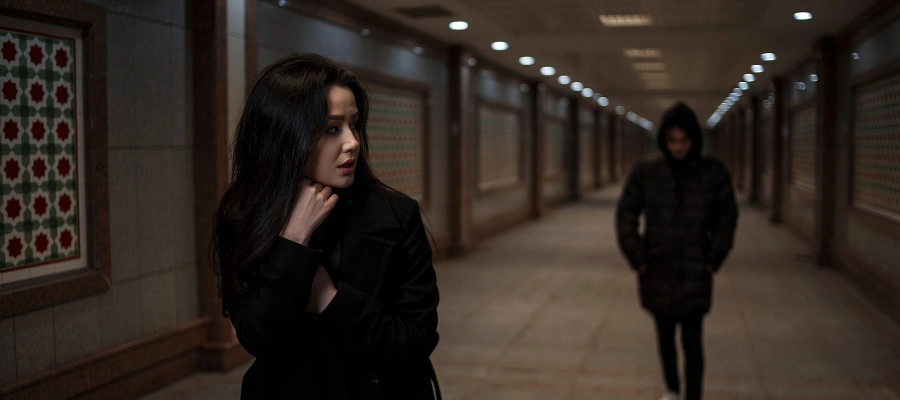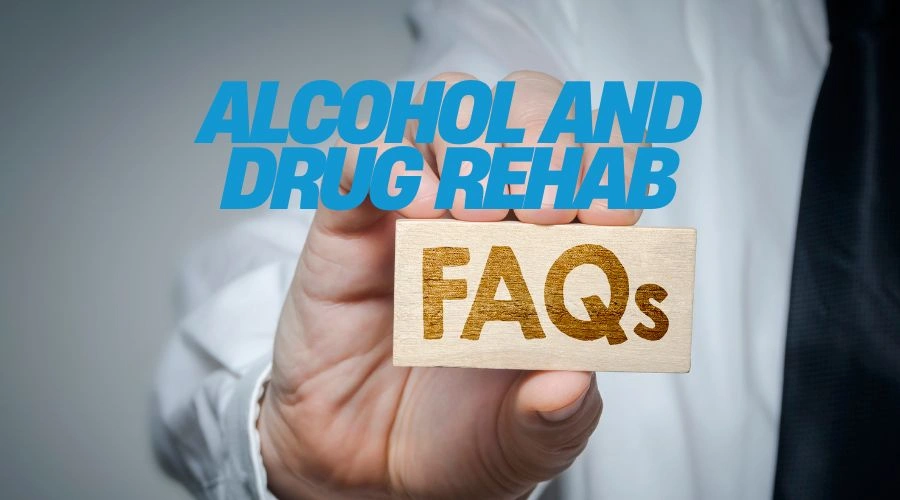Knowing the Symptoms of Childhood Trauma as an Adult
When we think of trauma, we often think of major events like natural disasters, car accidents, or physical abuse. But, adverse childhood experiences can also come in the form of things like neglect or emotional abuse. Childhood trauma can cause various effects.
Unresolved trauma from childhood can continue to affect you as an adult. For some people, it manifests as mental health conditions like anxiety or depression. Others may have trouble with relationships or substance abuse.
Commonly, trauma survivors will endure multiple effects. Icarus Wellness and Recovery works with childhood trauma survivors. We are here to help you or your loved one work toward trauma recovery.
Let’s go over some of the possible signs of repressed childhood trauma in adults. We’ll also discuss possible causes and treatment methods.
Get Effective Trauma Treatment Options – Reach Out Now!
9 Signs of Repressed Childhood Trauma in Adults
Some signs of repressed childhood trauma in adults are apparent, like clearly traumatic memories that become intrusive to our lives, while others are not so clear.
Most commonly, adult survivors of childhood trauma may experience the following effects.
1. Development of Anxiety Disorders
Childhood trauma can lead to anxiety disorders in adulthood for a number of reasons. First, traumatic experiences often create feelings of insecurity and mistrust, which can make it difficult to form healthy relationships. This often has the knock-on effect of causing problems in work or school environments.
Trauma leads to changes in the brain that make it more difficult to regulate emotions. This makes it hard to cope with stressors in everyday life, leading to anxiety and panic attacks. People who have experienced trauma often have difficulty sleeping, which can further increase anxiety levels.
2. Depression and Other Mood Disorders
Depression is another sign of repressed childhood trauma in adults. Trauma can cause changes in the brain that lead to depression, including feelings of hopelessness and helplessness. People who have experienced trauma often struggle with sleep and appetite, which further contributes to depression.
Therapists help people who are struggling with depression due to repressed childhood trauma by providing support, guiding the patient to process the trauma, and teaching coping skills.
3. Dissociation (Dissociative Episodes)
Dissociative episodes among adults with repressed childhood trauma are characterized by a sense of detachment from one’s surroundings and oneself. These episodes vary in intensity and may last for a few minutes or several hours.
During a dissociative episode, people may feel as if they’re observing their own body from outside of themselves or as if they are in a dream-like state. Additionally, dissociative episodes can cause memory loss and difficulty concentrating. Some experience changes in their sense of time or space.
4. Low Self-Esteem
Early childhood trauma is linked to low self-esteem. This is defined as having a negative view of oneself, feeling unworthy or unlovable, and lacking in confidence. Low self-esteem can result from feelings of shame and worthlessness that are developed in childhood.
Experiences of childhood trauma such as abuse, neglect, or witnessing violence can cause these feelings. It can also make it difficult to form healthy relationships and make it hard to cope with stress.
5. Anger and Trouble Controlling Emotions
There are a variety of reasons why repressed childhood trauma causes anger in adulthood. One is that when people repress their emotions, they are essentially pushing down any negative feelings they have. This can lead to those emotions eventually boiling over and manifesting as anger.
Repression of trauma can also lead to difficulty in regulating emotions, which can result in intense mood swings.
6. Hypervigilance or Feeling “On-Edge”
Hypervigilance is a natural reaction that is meant to protect you from danger. When a person is hypervigilant, they’re constantly on the lookout for any potential threat, even if there’s not one. This can lead to stress and anxiety causing unfavorable mental and physical symptoms.
7. Problems in Relationships
Trauma survivors of all ages can show problems with attachment and interpersonal relationships. Any type of relationship, including romantic relationships, can be affected by past events and their effects.
8. Substance Abuse and Addiction
Childhood trauma survivors are at an increased risk of substance use. This can take many forms. For example, alcohol, cocaine, opioid, and marijuana dependence.
Substance abuse can pair with other mental health disorders, like post-traumatic stress disorder (PTSD). When this is the case, our team will address addiction and mental health simultaneously through dual-diagnosis treatment.
9. Physical Signs of Trauma
Alongside emotional signs, childhood trauma survivors can be more prone to a range of physical health issues. These include but aren’t limited to chronic pain, heart disease, cancer, and risky behaviors (e.g., smoking) that can harm your well-being.
Get Accredited Treatment Programs at Icarus
Examples of Adverse Childhood Experiences
There are many different causes of childhood trauma. Some children experience abuse, either physical, emotional, or sexual. Others witness violence, such as domestic abuse or gang activity.
Children who experience any of these traumas may develop PTSD, which can lead to a number of emotional and behavioral problems. PTSD can be treated effectively via trauma therapy.
Forms of Abuse
Abuse is a common cause of repressed trauma. It can take many different forms, including:
Physical abuse
Childhood physical abuse takes many different forms. It can be anything from slapping or hitting to more serious forms of violence like kicking, choking, or burning. It can sometimes involve someone using weapons like knives or guns.
Sexual abuse
Sexual abuse is any form of sexual violence, including rape, child molestation, incest, and sexual harassment. Sexual abuse can happen to anyone. It’s important for survivors of child sexual abuse to understand that the abuse was not their fault and that they can get help.
Emotional abuse
Emotional abuse of children can refer to a wide range of behaviors that parents or caregivers use in order to control, intimidate, or otherwise manipulate a child. These can include things like yelling, name-calling, put-downs, criticism, and threats.
Emotional abuse can also involve more subtle actions, such as withholding love or affection, or preventing a child from engaging in positive activities. While emotional abuse can have short-term effects, such as low self-esteem or anxiety, it can also lead to long-term problems.
Physical neglect
Physical neglect is a form of child abuse in which a caregiver fails to provide for a child’s basic needs, such as food, clothing, shelter, medical care, or supervision. Physical neglect can have serious and long-term consequences for a child.
Neglect can lead to problems with physical growth and development, mental health problems, and educational difficulties. Physical neglect also puts a child at risk for accidents and injuries.
Neglect as a Child
Neglect is a form of child abuse, and it can have serious and long-lasting effects on a child. Neglect can be physical, emotional, or medical. It can have serious and long-lasting effects on a child’s physical, emotional, and social development.
Physical effects include problems with growth and development, poor nutrition, and increased risk of injuries and accidents.
Emotional neglect
Emotional neglect is often defined as a form of abuse in which the parent or caregiver does not provide the child with the emotional support that is needed. This can include neglecting to show affection, not providing attention or love, or consistently putting the child’s needs last.
Emotional neglect can have a lasting and detrimental effect on a child’s development and well-being, and may even lead to mental illness later in life.
Medical neglect
Suffering medical neglect means that a child is not receiving the medical care they need. This can cause a wide variety of problems. For example, unresolved physical health concerns that worsen over time and mental health effects resulting from trauma.
Treatments for Unresolved Childhood Trauma in Adulthood
If you show signs of repressed childhood memories that cause trauma, a mental health professional can help you to address these issues. They can provide you with support and guidance as you work through your repressed memories and emotions.
Treatment through mental health services like our offerings at Icarus Wellness also offers healthy coping mechanisms and problem-solving strategies for dealing with the symptoms of unresolved childhood trauma.
Cognitive Processing Therapy
Cognitive processing therapy (CPT) is a type of therapy frequently used for PTSD. This type of therapy can help people to process their thoughts and emotions in a more effective way. This can include identifying how current thought patterns contribute to PTSD symptoms.
CPT is derived from cognitive behavioral therapy. An example of the treatments used at our center, it can be conducted in individual and group therapy sessions.
Prolonged Exposure Therapy
Prolonged exposure therapy, or PE, is a type of treatment that can help people who have experienced trauma. This therapy involves guiding people to process their memories and to reduce their avoidance of reminders of the event.
Exposure therapy typically involves talking about the event, listening to recordings of the event, and imaginal exposure. Imaginal exposure involves imagining the event as if it is happening again.
Eye Movement Desensitization and Reprocessing (EMDR)
EMDR therapy is a type of psychotherapy that uses eye movements to help people heal from unresolved trauma. It is a relatively new therapy, having only been developed in the late 1980s. EMDR has been found to be an effective treatment for post-traumatic stress disorder.
When we experience traumatic events, our brains can become “stuck” in a state of hyperarousal. This method is thought to help “unstick” these memories so that they can be processed and healed.
Childhood Trauma: You Are Far From Alone In This Struggle
Many adults have experienced childhood trauma in some form. This trauma is often repressed, or buried deep in the subconscious mind. If you are a survivor of childhood trauma (especially abuse or neglect), you may have been taught early on that you can’t trust yourself or that you are over-reacting.
In turn, many people take a long time to fully acknowledge that their trauma, and concurrent emotions, are valid and worth addressing. Usually, that’s how these events go unaddressed or unresolved. Lack of financial resources can also play a role in delayed trauma treatment.
However, it is important not to ignore it due to the physical and emotional health effects unresolved trauma can cause. If you or someone you know is showing signs of repressed childhood trauma, know that you’re not alone and that there is a healing process.
Up To 100% of Rehab Costs Covered By Insurance
Choose Icarus Wellness to Overcome Childhood Trauma
Rebuilding your life, confidence, and sense of self is possible after trauma. No matter how deep-rooted the implications are, childhood trauma survivors can go on to have healthy relationships and fulfill their goals.
There are many ways to treat past trauma effectively. Every survivor is unique. That’s why our mental health professionals take a personalized approach.
Call Icarus Wellness and Recovery confidentially for help overcoming the effects of childhood trauma today. We’re in network with most major insurance providers and are here to help you or your loved one find solutions.
References
- Understanding child trauma – what is childhood trauma?. SAMHSA. (n.d.-d).
- Peterson, S. (2018, June 11). Effects. The National Child Traumatic Stress Network.
- Khoury, L., Tang, Y. L., Bradley, B., Cubells, J. F., & Ressler, K. J. (2010, December). Substance use, childhood traumatic experience, and posttraumatic stress disorder in an urban civilian population. Depression and anxiety.
- Centers for Disease Control and Prevention. (n.d.-a). About adverse childhood experiences. Centers for Disease Control and Prevention.
- American Psychological Association. (n.d.). American Psychological Association.
- American Psychological Association. (n.d.). American Psychological Association.
- History of EMDR. EMDR Institute – EYE MOVEMENT DESENSITIZATION AND REPROCESSING THERAPY. (2024, January 3).









